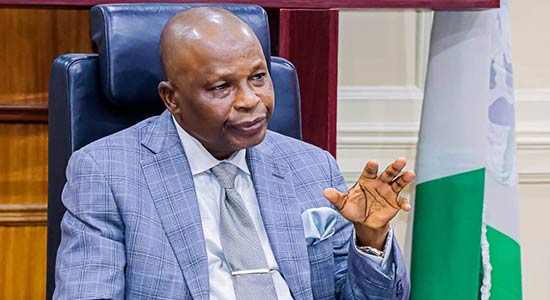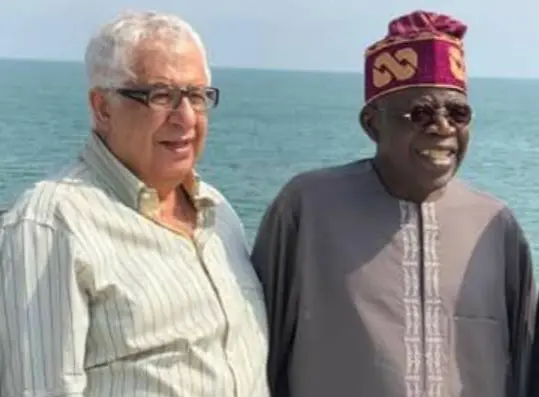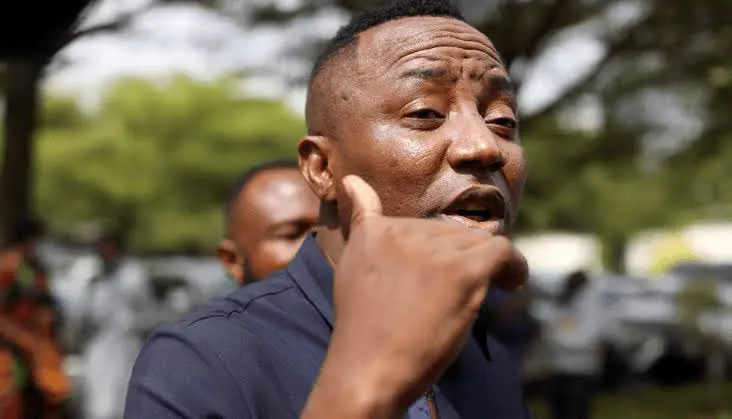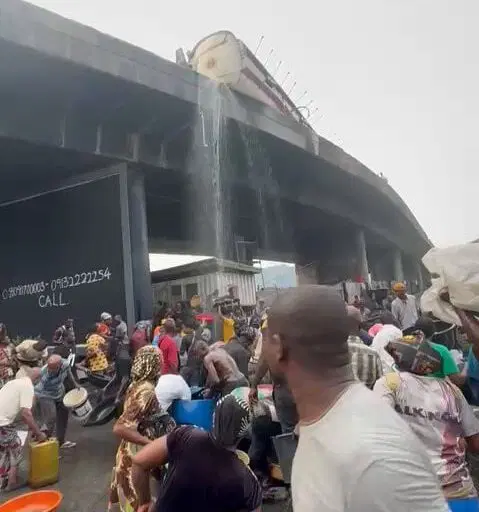
Following the backlash over the list of beneficiaries of the presidential pardon and clemency, the federal government is now considering a review. However, a mere review is not enough. The list must be thoroughly vetted to ensure that no names were smuggled in, Davidson Iriekpen writes
Amid growing public outcry over the inclusion of certain high-profile and violent offenders in the list of those pardoned by President Bola Tinubu, the federal government last Thursday made a U-turn, stating that the process is still undergoing final administrative review.
Shock and outrage had greeted the release of the full list of the 175 Nigerians granted presidential pardon by President Tinubu with the backing of the National Council of State.
But in a statement, the Attorney-General of the Federation and Minister of Justice, Prince Lateef Fagbemi (SAN), said no inmate approved for clemency under the exercise of Tinubu’s power of prerogative of mercy has been released from custody.
According to him, the review phase is part of standard protocol and demonstrates the government’s commitment to transparency, due diligence, and the rule of law. He commended the public for its interest and scrutiny of the exercise, describing such engagement as evidence of Nigerians’ commitment to justice and good governance.
The minister noted that the issuance of the instrument of implementation marks the last phase of the process, after which the Controller-General of the Nigerian Correctional Service will be authorised to act. He assured that the public would be duly informed once all legal and procedural checks are completed.
“The Honourable Attorney-General of the Federation and Minister of Justice appreciates the public’s vigilance and constructive feedback, which continue to strengthen institutional integrity. Public engagement is always welcome, as it demonstrates that Nigerians care deeply about justice and good governance.
“There is no delay in the process; it is simply following the law to the letter to ensure that only those duly qualified benefit from the president’s mercy. As soon as all legal and procedural checks are concluded, the public will be duly informed. The rule of law does not rush; it ensures fairness,” the statement stated.
The Presidency had penultimate Saturday mounted a strong defence of the action. It argued that some beneficiaries had demonstrated remorse and good conduct, while others were pardoned on the grounds of old age or the acquisition of new vocational skills.
Among those pardoned were individuals convicted of serious offences ranging from drug trafficking to murder, armed robbery and illegal mining. Some were already serving long prison sentences, including death sentences.
With the nationwide insecurity, moral decay, and a surge in drug-related offences, many were shocked that the presidency would prioritise clemency for those whose actions have directly undermined national stability and social order.
Particularly outrageous is the fact that 70 drug lords were granted pardon, prompting many to demand the scrapping of the NDLEA.
Many Nigerians also queried the clemency granted to Maryam Sanda, who was sentenced to death for killing her husband in 2017.
Tinubu’s action was said to be a mockery of the criminal justice system, an affront to victims, a demoralisation of law enforcement, and a grave injury to the conscience of the nation.
THISDAY gathered that the EFCC, ICPC, NDLEA and other security agencies had raised strong objections to the list, insisting that some of the names were “smuggled in” and not part of those recommended by the presidential committee that screened applicants for clemency.
They added that anti-graft agencies warned that releasing some of the convicts could undermine the ongoing fight against corruption and organised crime.
Many had argued that Fagbemi, as the AGF, bore a huge share of the blame for the pardon and clemency.
As the Chairman of the Presidential Advisory Committee on the Prerogative of Mercy and Chief Law Officer of the country, it was Fagbemi’s duty to carefully weigh those up for clemency and pardon before presenting them.
Those who spoke to THISDAY said the pardon was contrary to the avowed government’s position against drug trafficking.
Others were also concerned about Nigeria’s international image, questioning how the country would present itself as a trading hub while appearing to be a safe haven for drug traffickers.
They described the president’s action as morally indefensible, saying that it also undermined justice and emboldened criminality.
Many also wondered where Fagbemi was when the full list was released to the public.
“Is it that the AGF did not see or vet the list thoroughly before it was released?”, asked an analyst who didn’t want her name mentioned.
On his part, former Vice President Atiku Abubakar, former Kaduna State Governor, Nasir el-Rufai, civil society organisations and opposition political parties have all condemned the president’s action and warned of its dire consequences for the country.
The African Democratic Congress (ADC), in a statement by its interim National Publicity Secretary, Mallam Bolaji Abdullahi, said the president’s action undermines the country’s anti-drug efforts and encourages crime, as well as further tarnishes Nigeria’s image in the international community.
It stated that what President Tinubu did was an abuse of his prerogative of mercy to grant clemency to persons serving prison terms for drug-related offences, especially when most of them have barely served two years.
Describing the pardon as pathetic and an act of immense national disgrace, it noted that officials of the NDLEA and other security agencies have taken grave risks to prosecute and secure convictions for drug offenders. It argued that granting clemency to such convicts was nothing but a mockery of the efforts of gallant officers in the fight against narcotics and illicit drugs.
Similarly, in a post on his social media platforms, Atiku said “the decision to extend clemency to individuals convicted of grave crimes, such as drug trafficking, kidnapping, murder and corruption, not only diminishes the sanctity of justice but also sends a dangerous signal to the public and the international community about the values this government upholds.”
For El-Rufai, the president’s action was not that of compassion, as many would think, but that of a reunion of people of like minds.
Writing on his X (formerly Twitter) handle, he said: “For a president once accused of forfeiting $460,000 to the US authority in a drug-linked investigation, pardoning drug dealers feels less like compassion and more like a class reunion of cartel alumni association.”
The Leader of INRI Evangelical Spiritual Church, Primate Elijah Ayodele, on Tuesday, faulted Tinubu’s pardon, describing the action as wasting the efforts of the NDLEA and security operatives who arrested and convicted the criminals.
Amnesty International said the manner President Tinubu carried out the exercise seemed to prioritise the perpetrators instead of access to justice and effective remedies for the victims and their families.
In a statement signed by its Director in Nigeria, Isa Sanusi, the global watchdog stated that the actions of the government have the potential of undermining the rule of law, preventing the emergence of the truth, the determination of guilt or innocence by a court and reparations for victims, as well as entrenching impunity for human rights crimes.
While a lawyer, Mr. Daniel Okon, said the president abused the prerogative of mercy power with his action, a social policy analyst, Emmanuel Olufemi, called on President Tinubu to revoke the pardon, particularly that of Maryam Sanda, who killed her husband and other convicted drug traffickers.
He argued that pardoning Sanda undermines the intrinsic value of human life and the principle of accountability, while granting clemency to drug traffickers signals a moral abdication that normalises predation on society’s most fragile members.
It is expected that the promised review of the exercise will address the concerns of Nigerians and ensure that justice is served.
Most importantly, the AGF needs to thoroughly investigate whether the names of some persons who were not part of those recommended by the presidential committee that screened applicants for clemency were smuggled into the list. If this is the case, they should be fished out and dealt with.
THISDAYLIVE.




